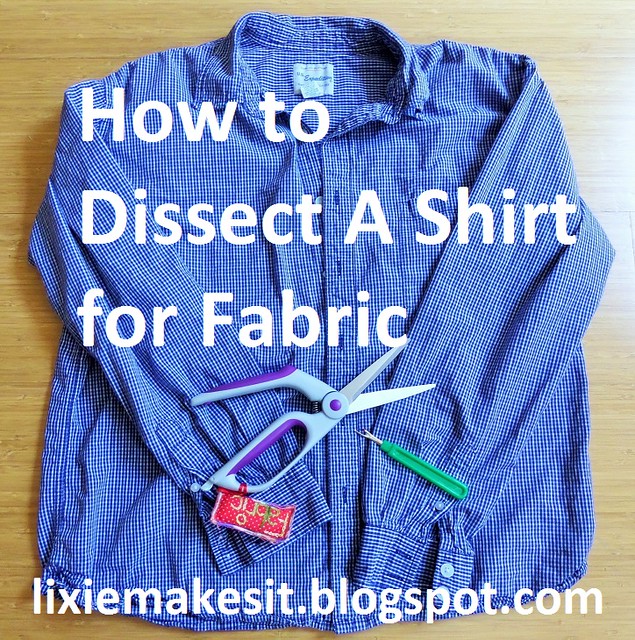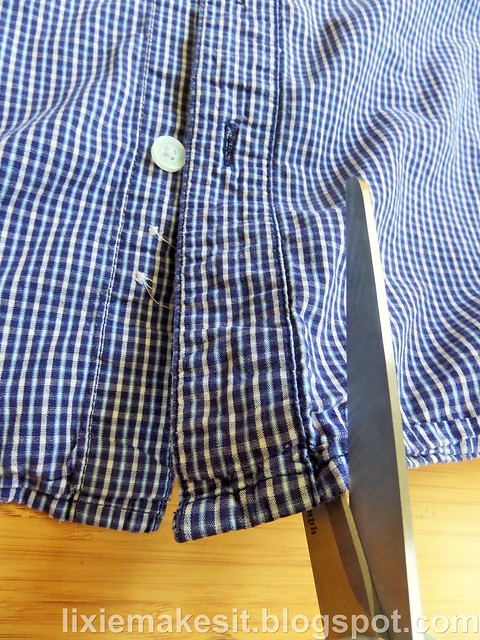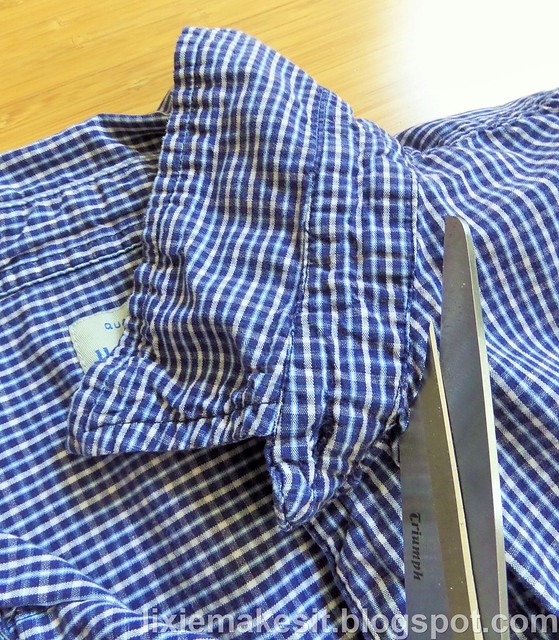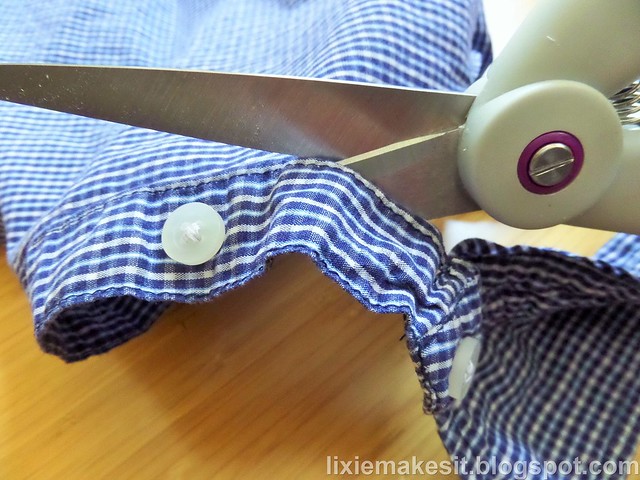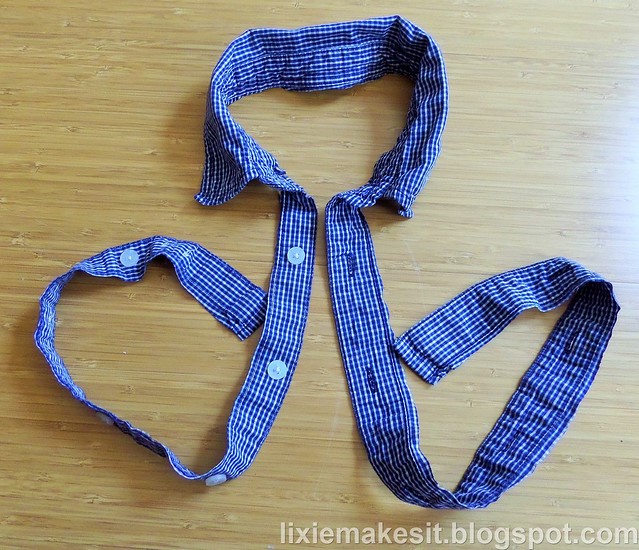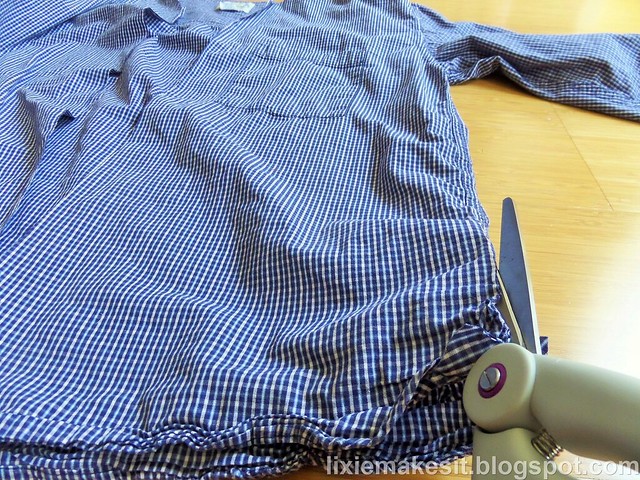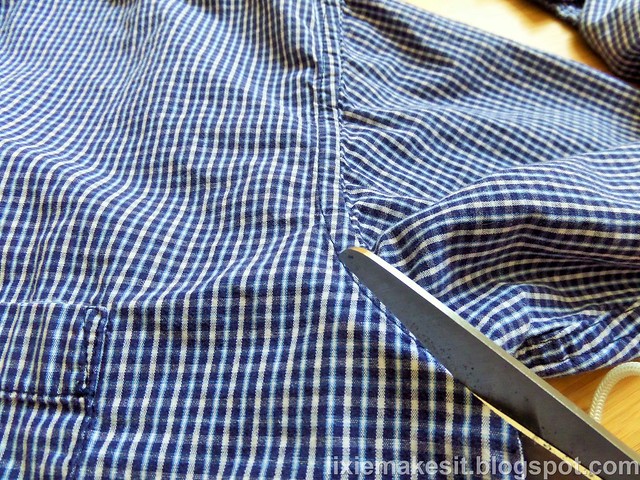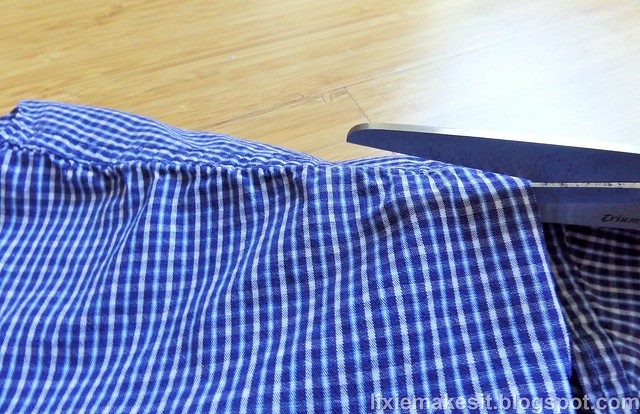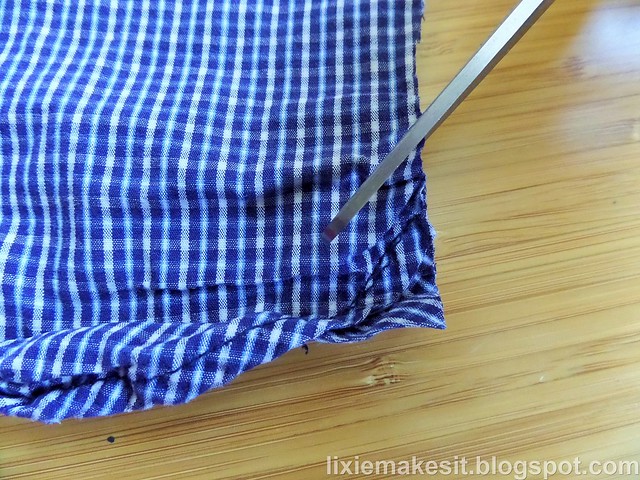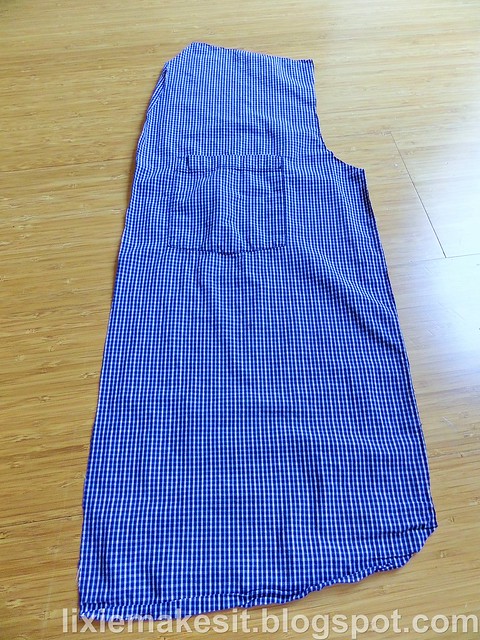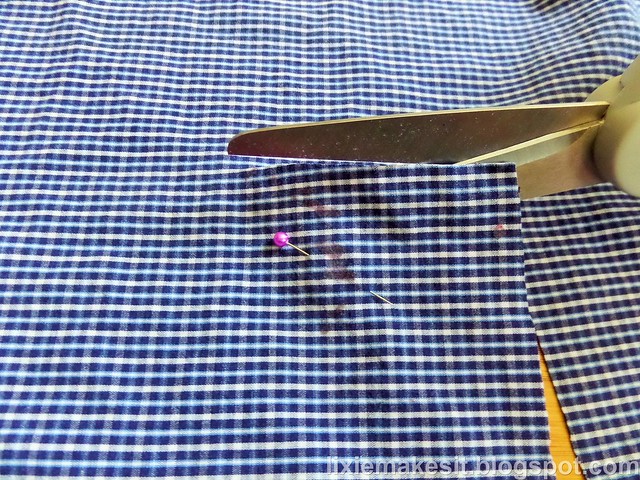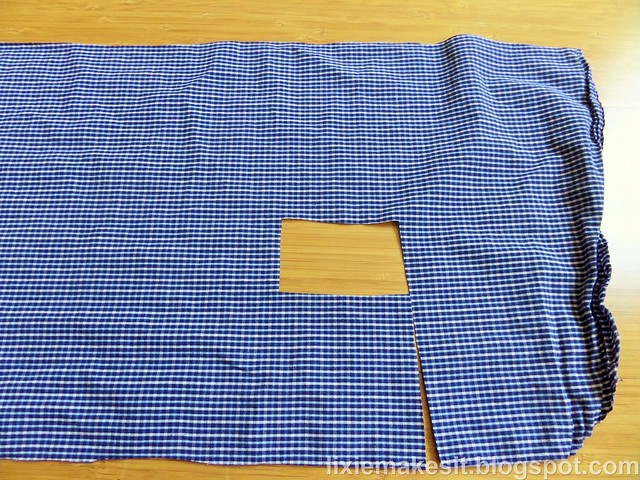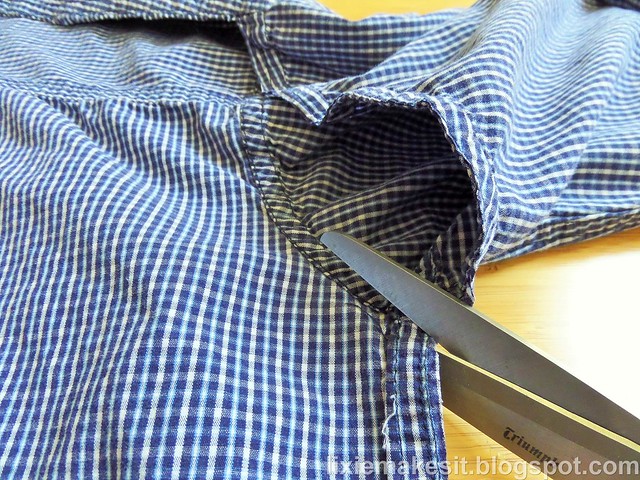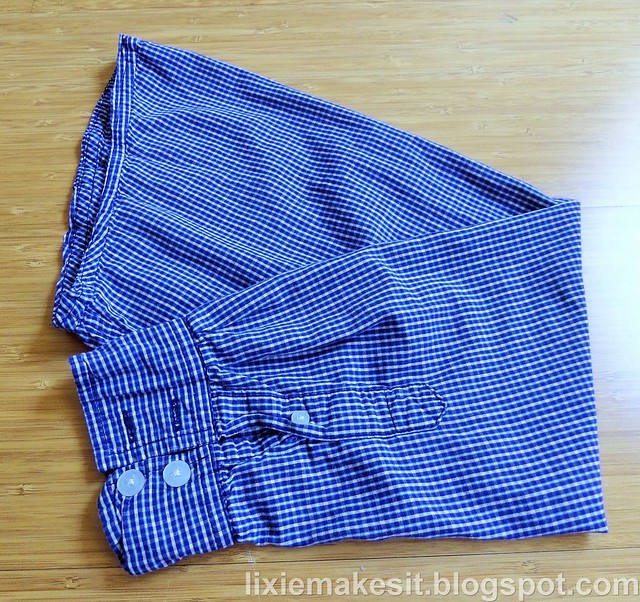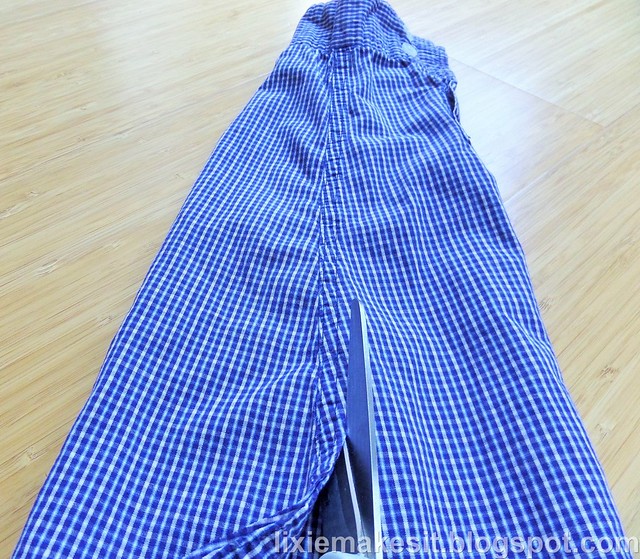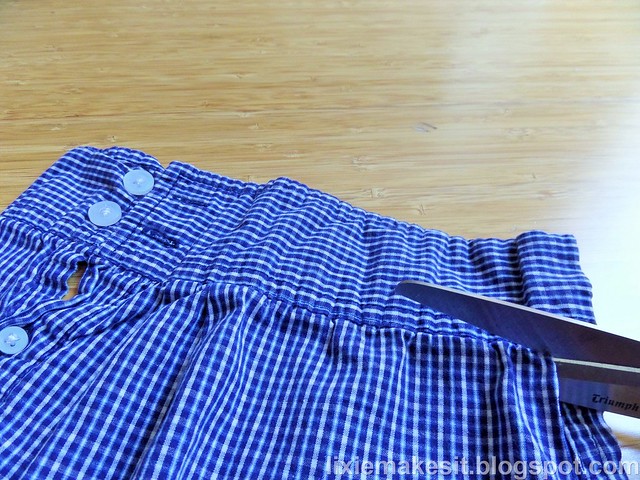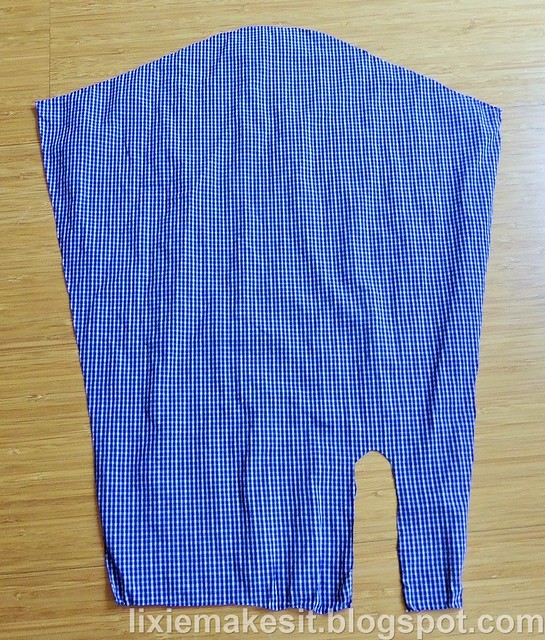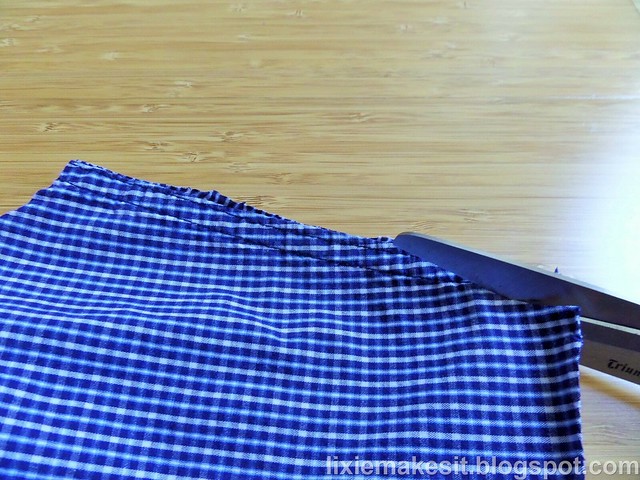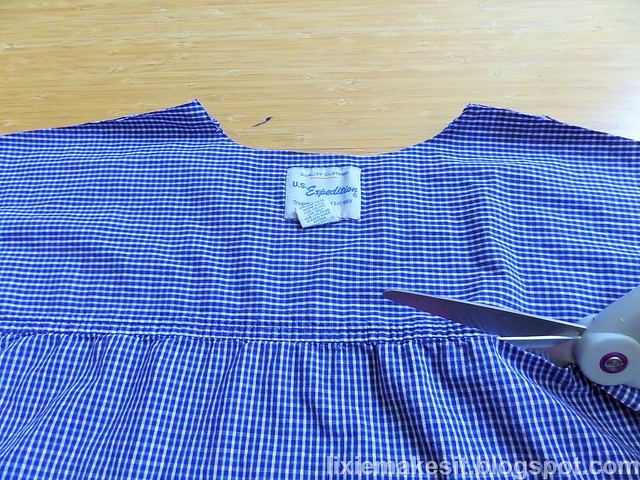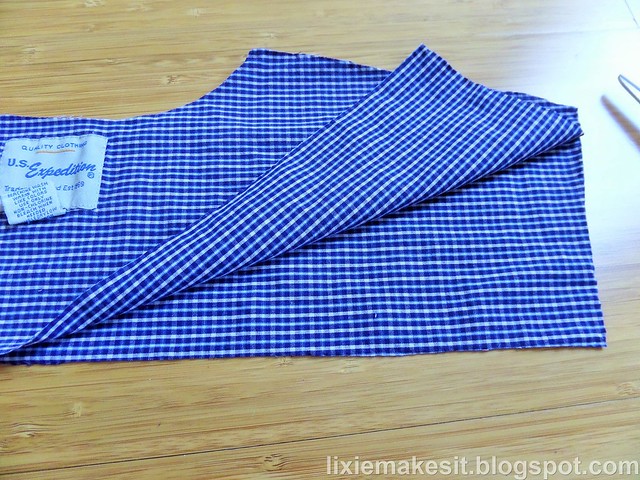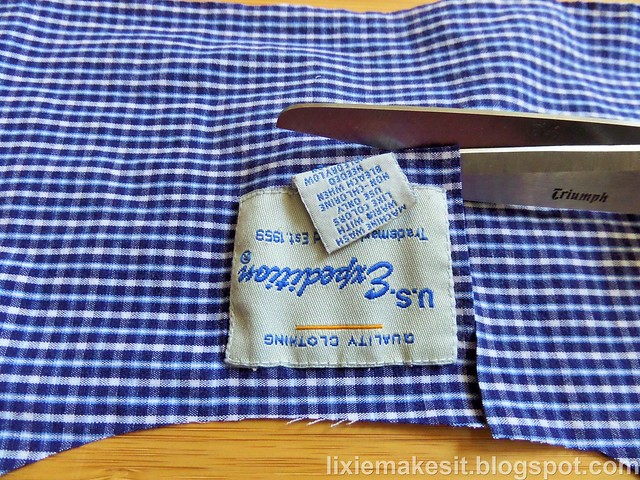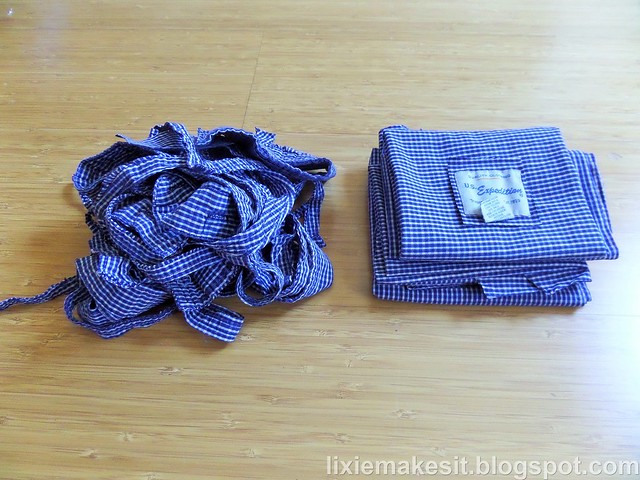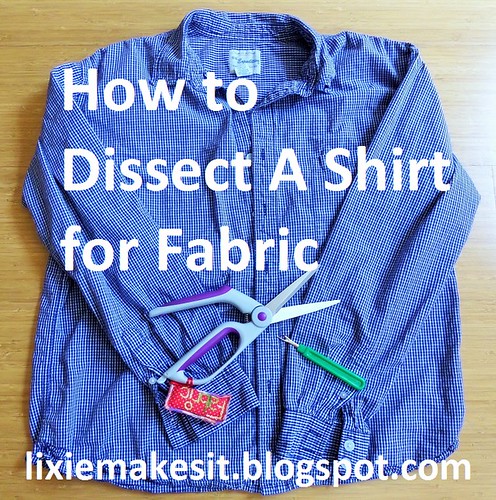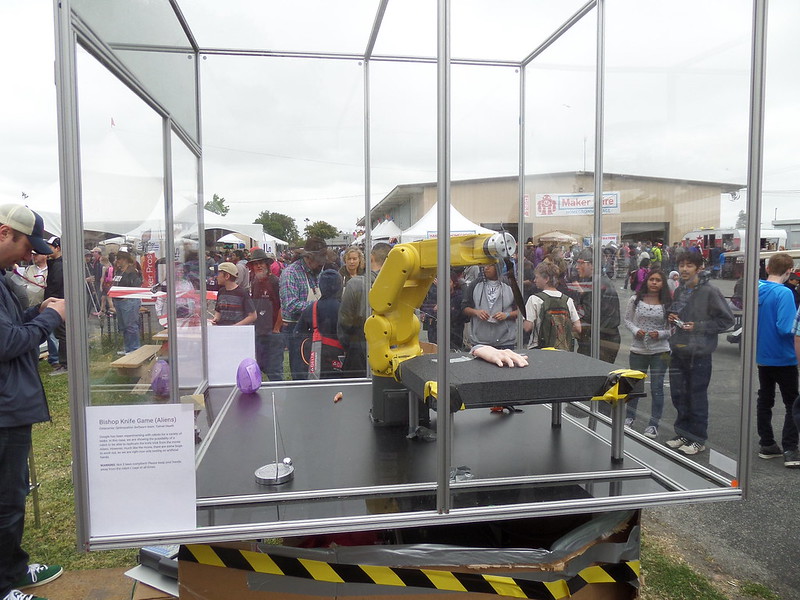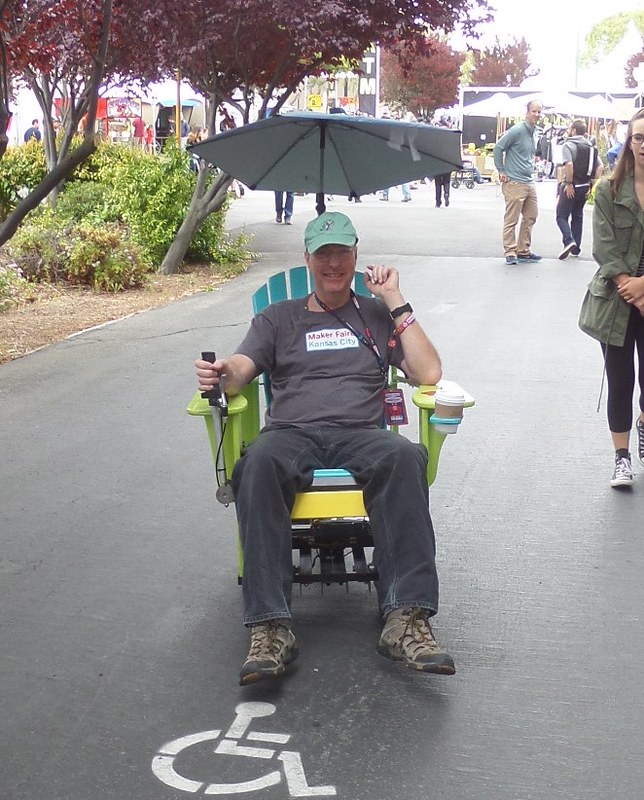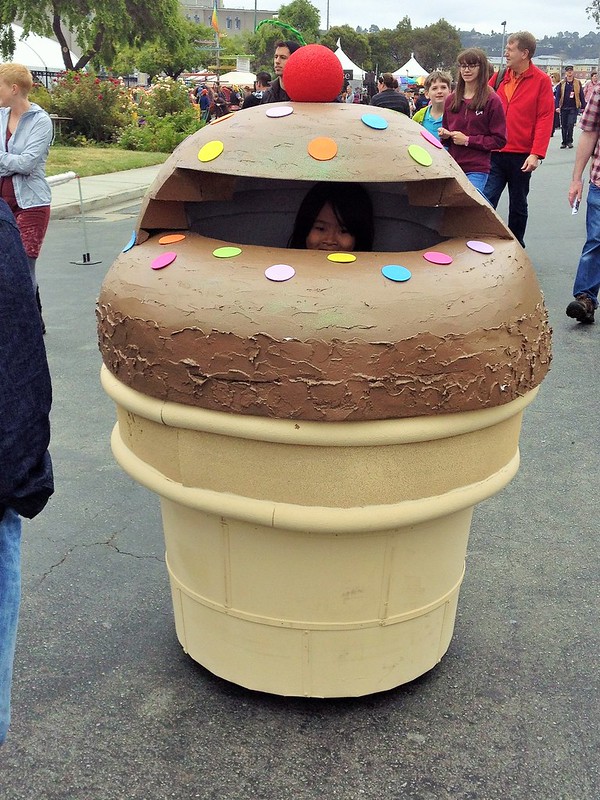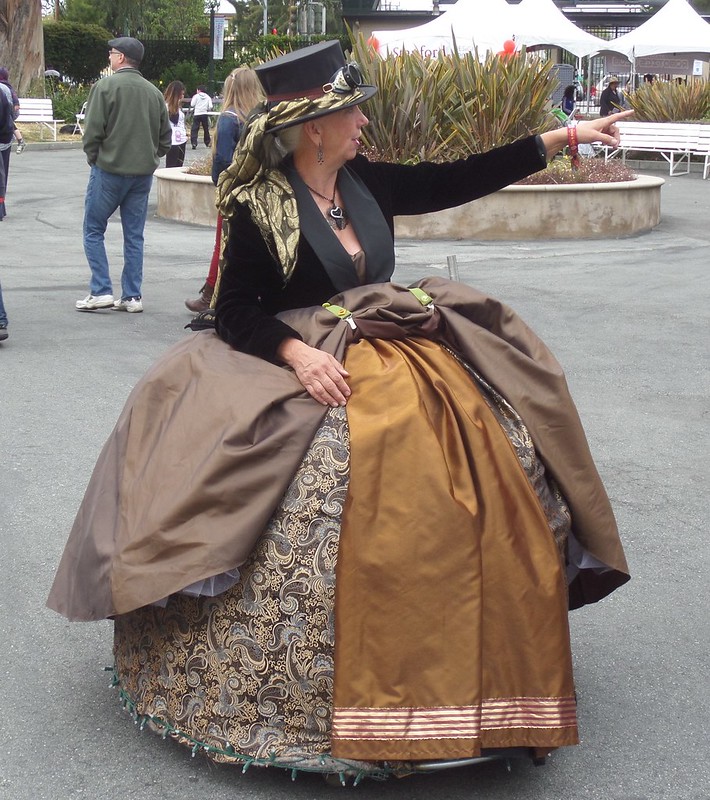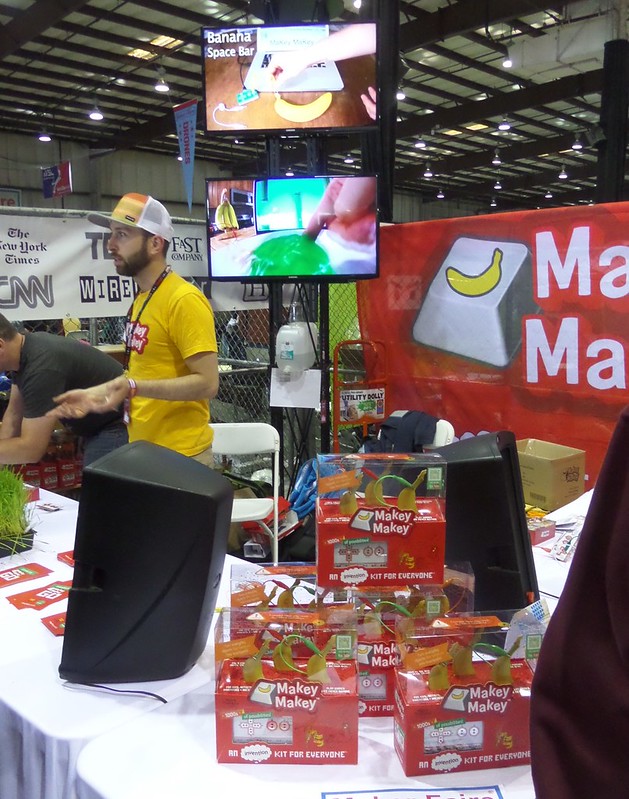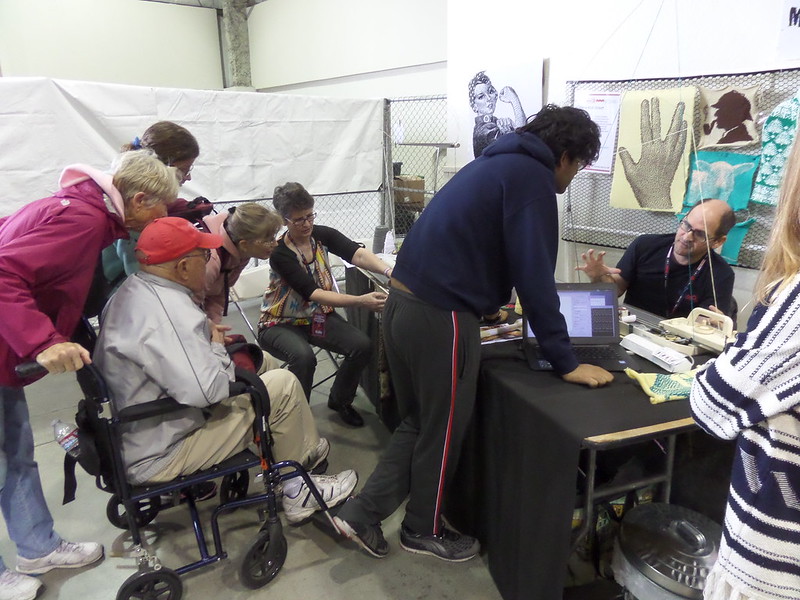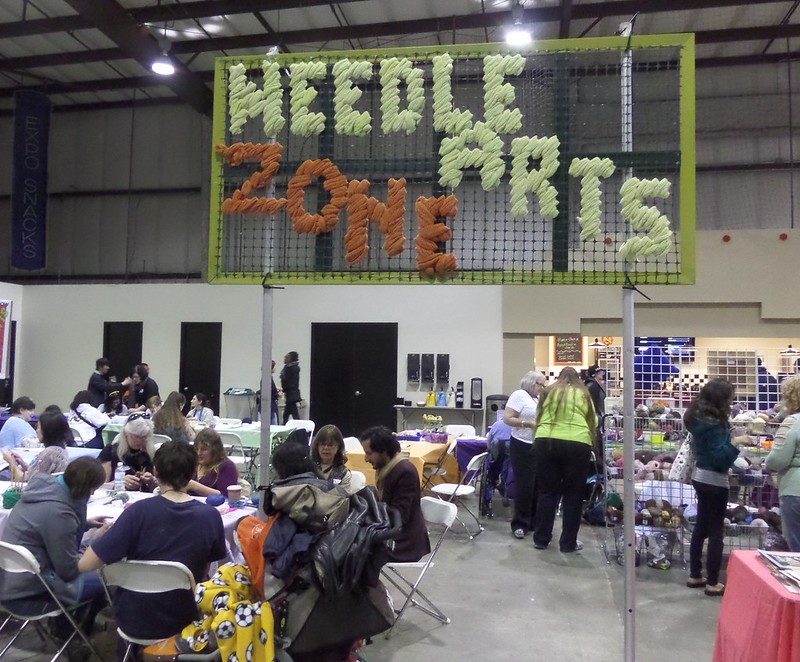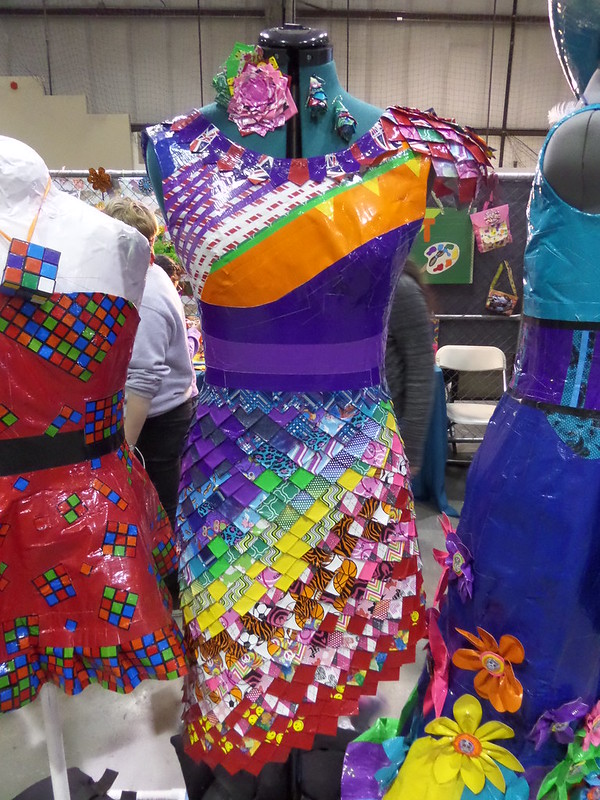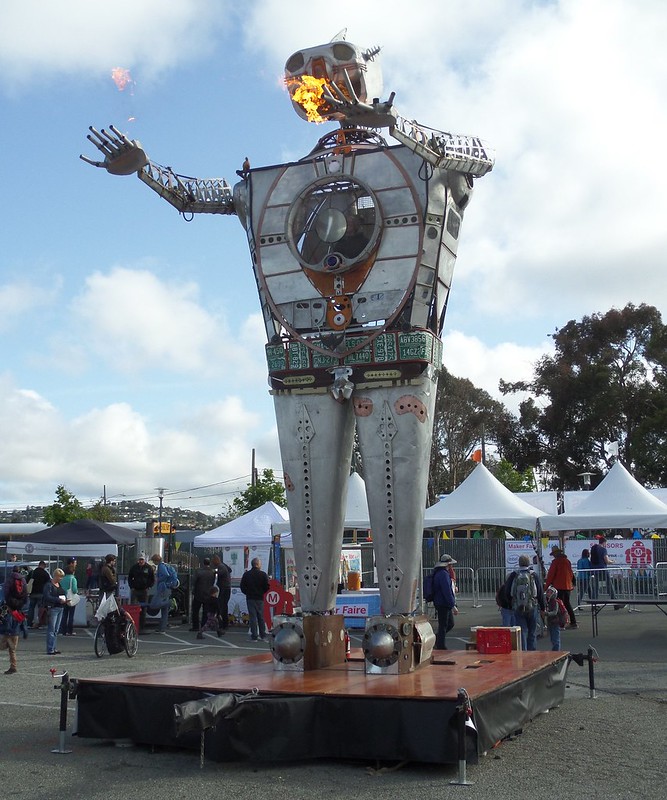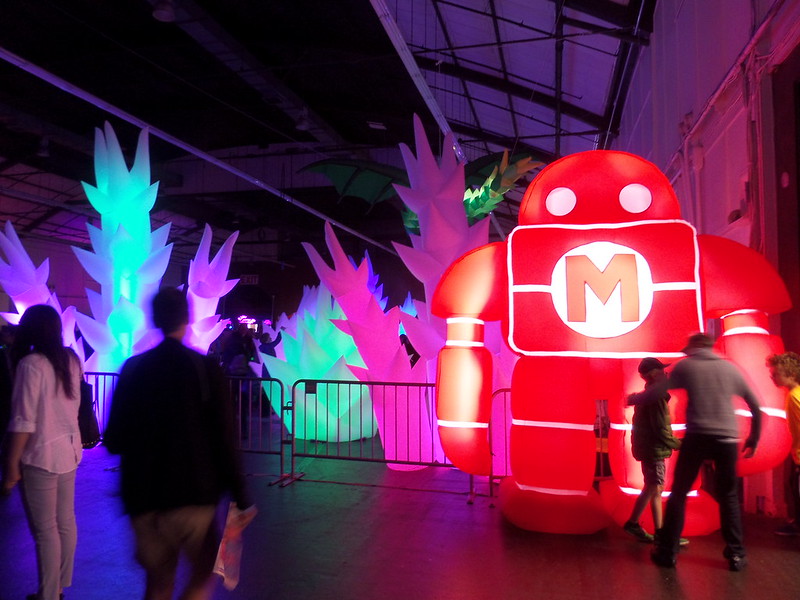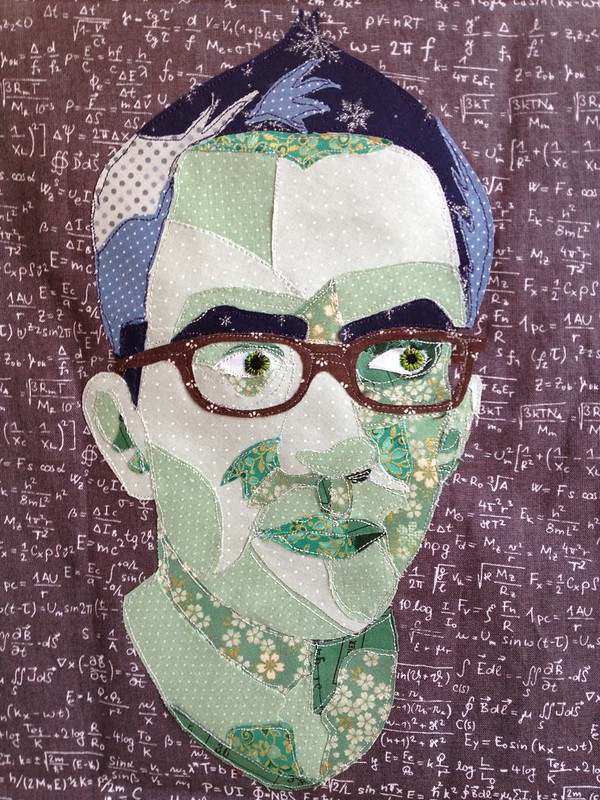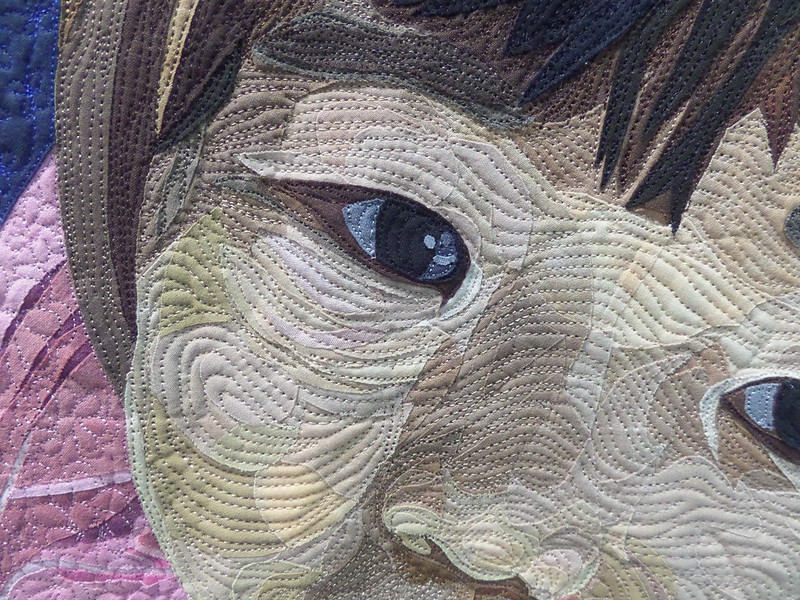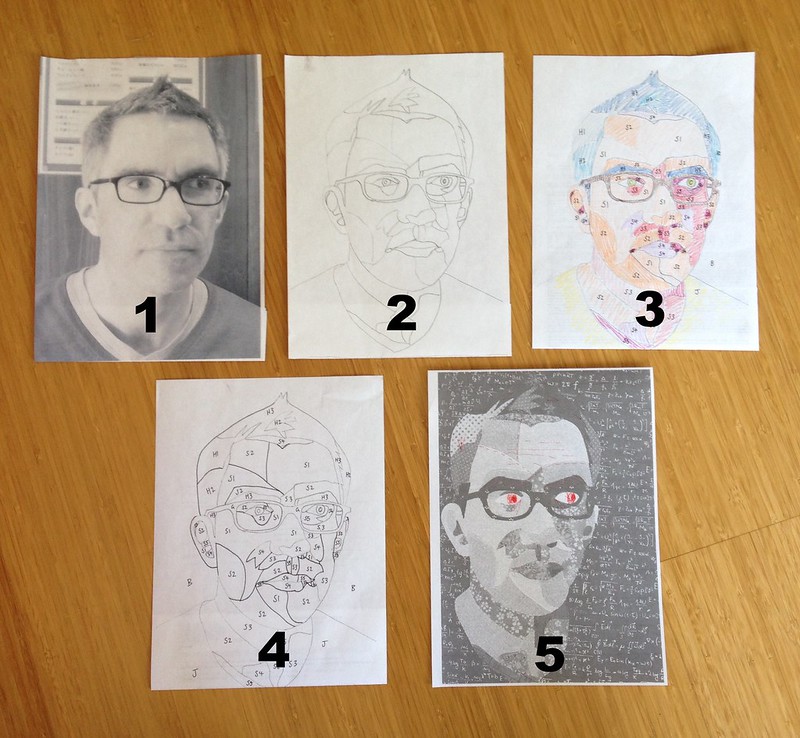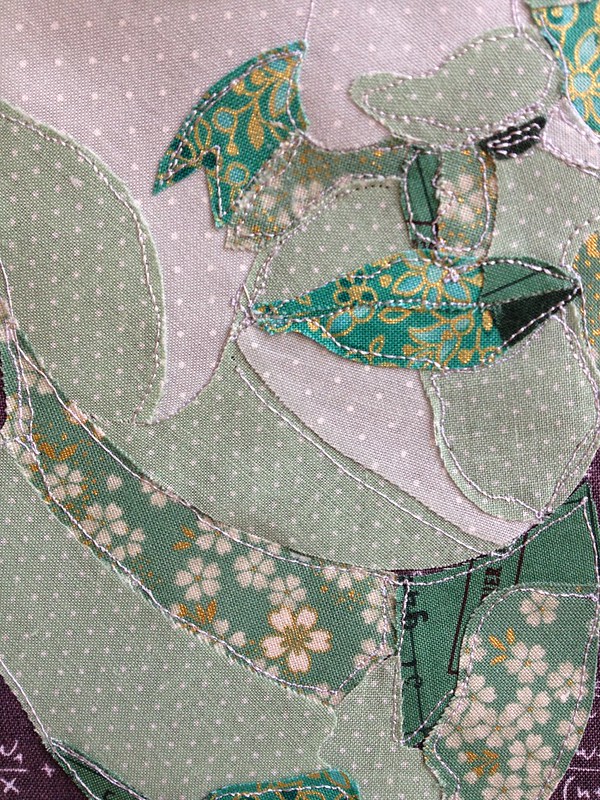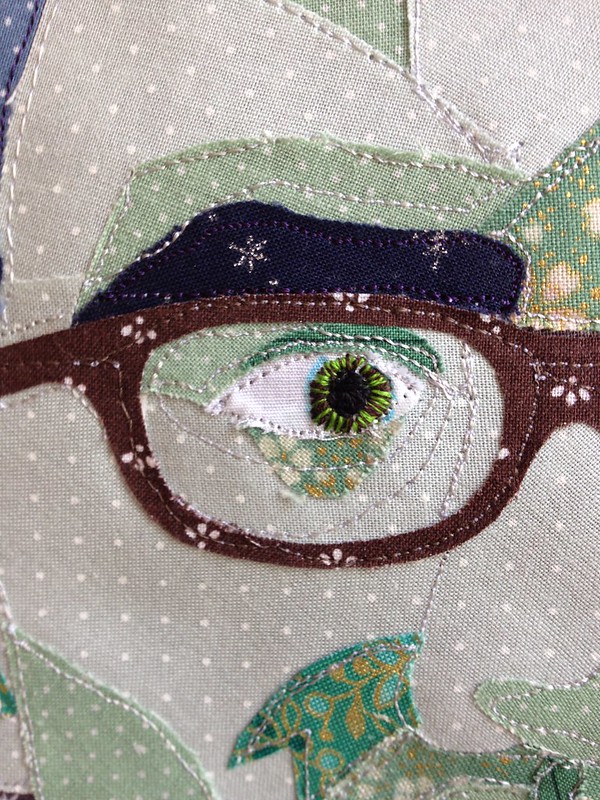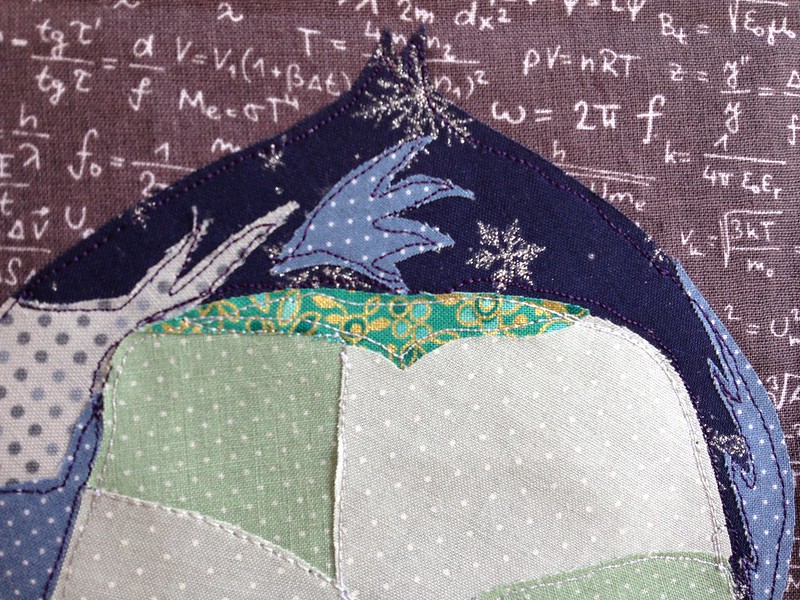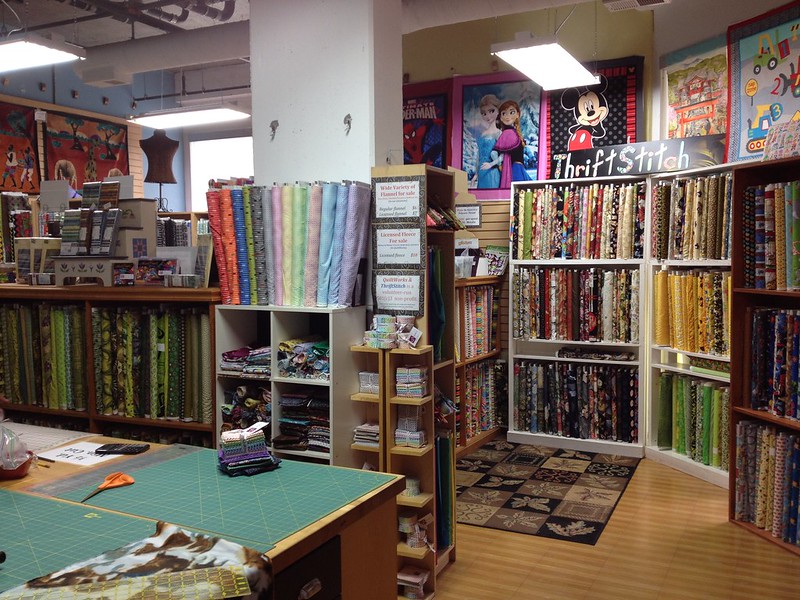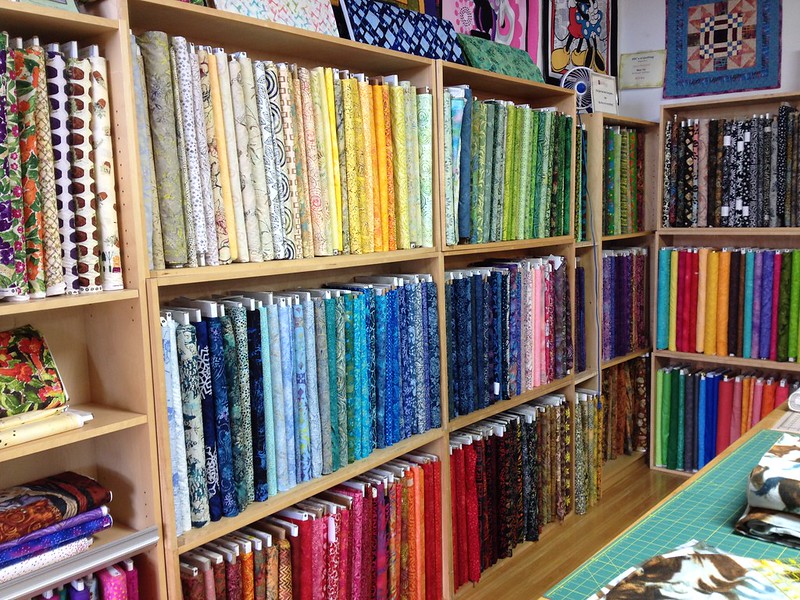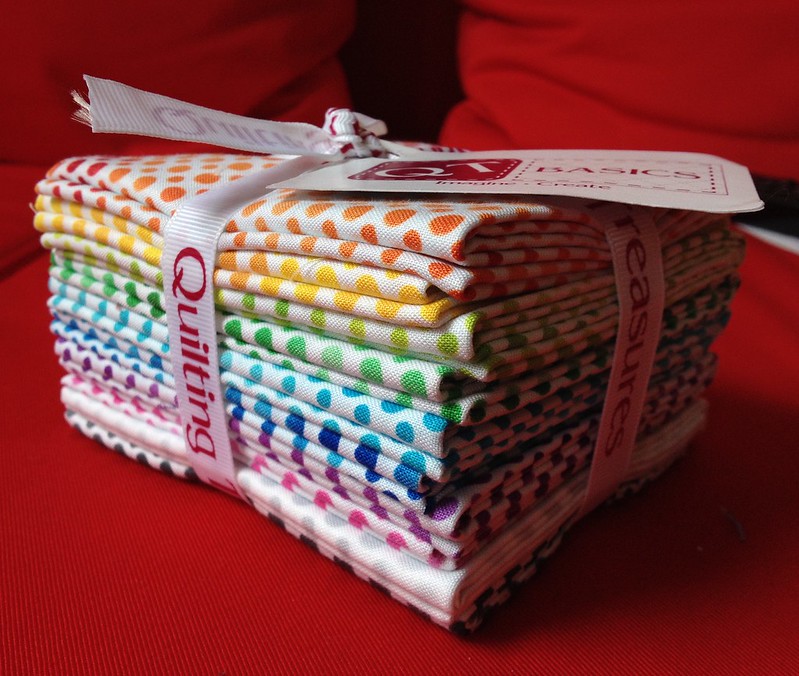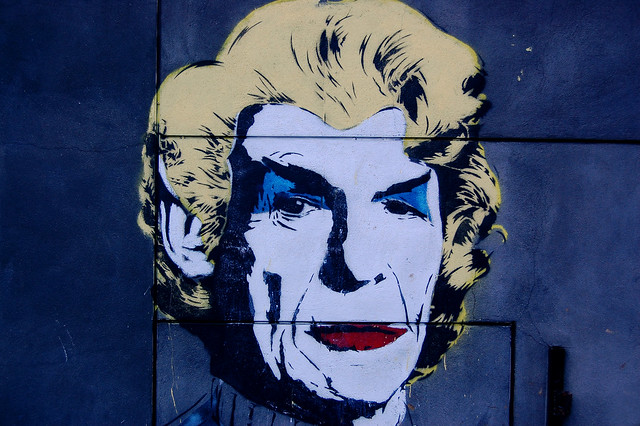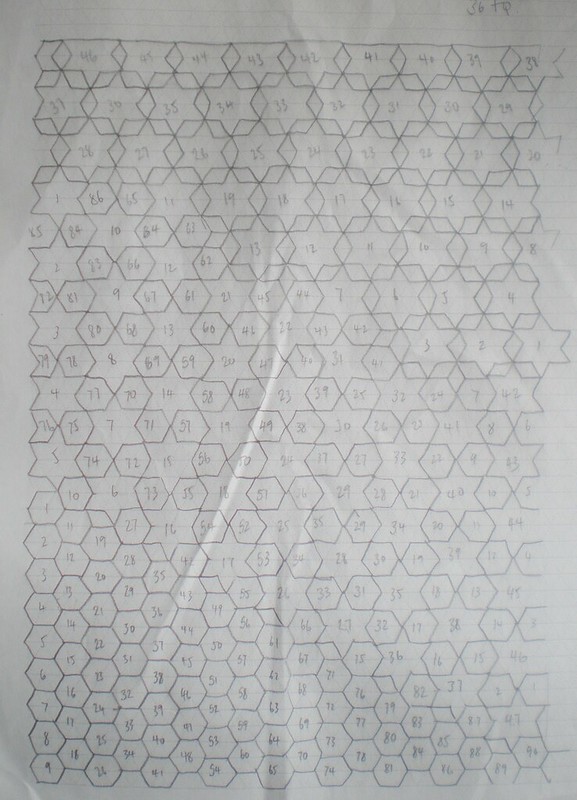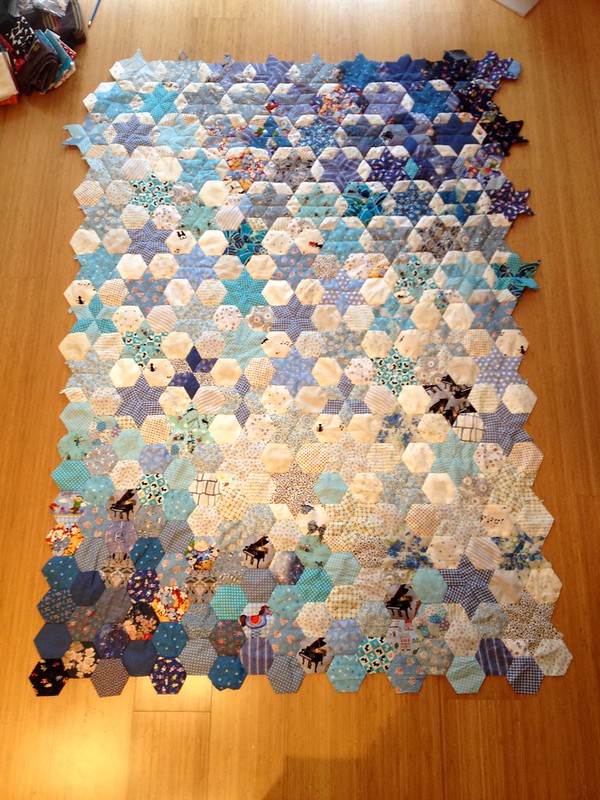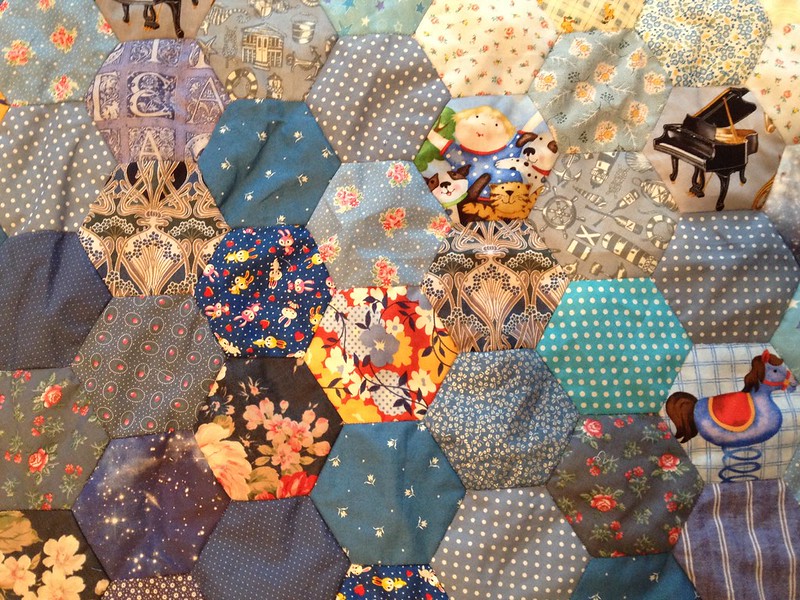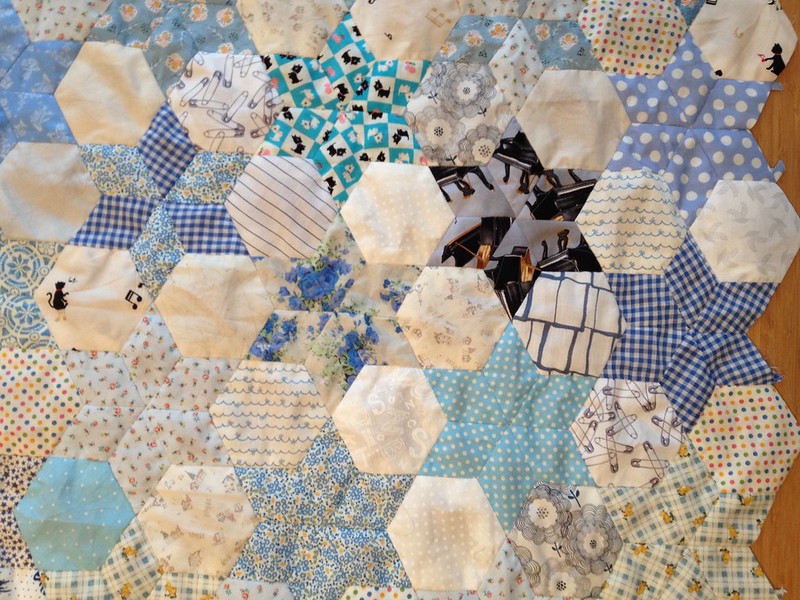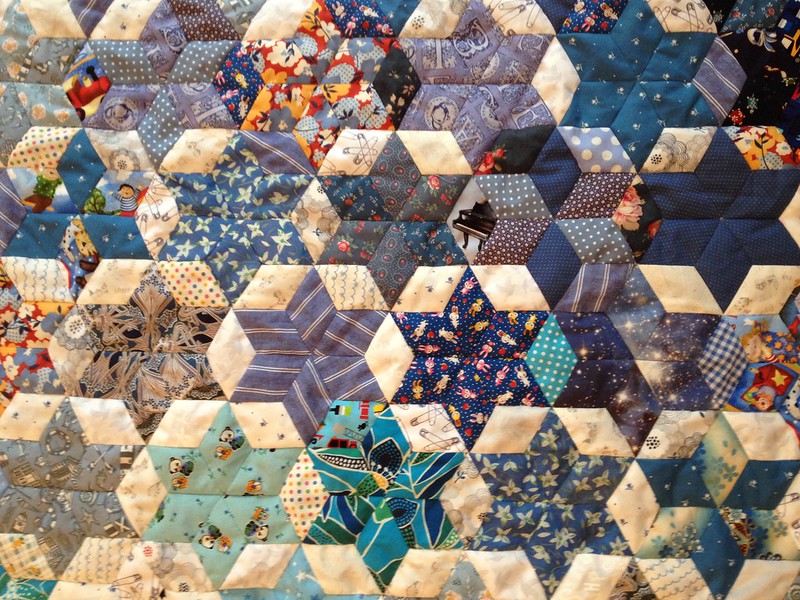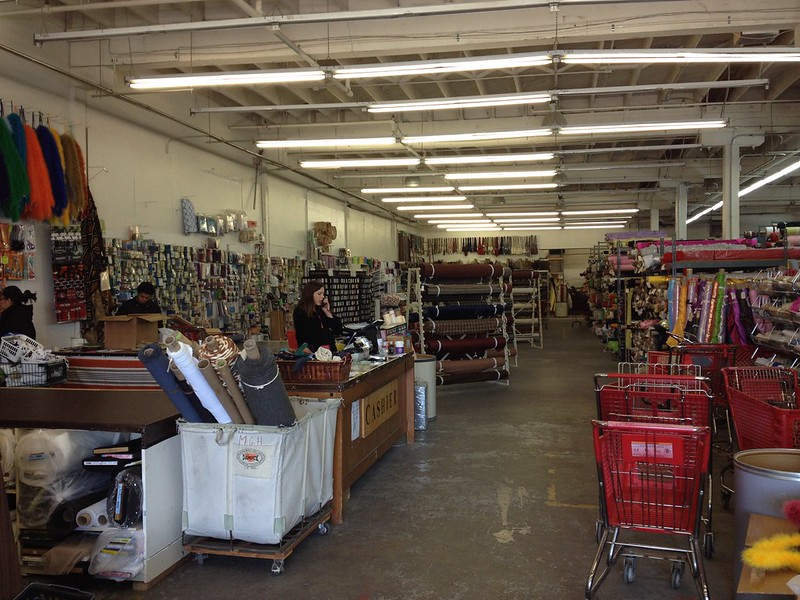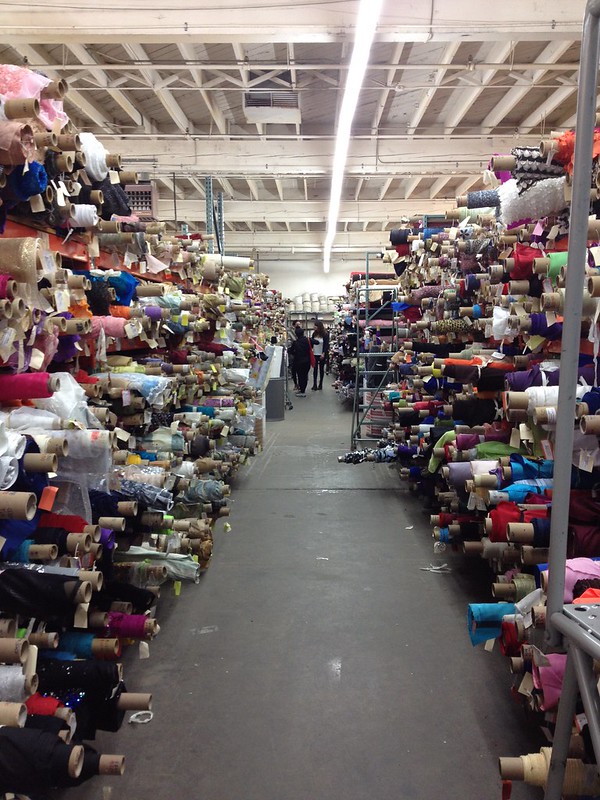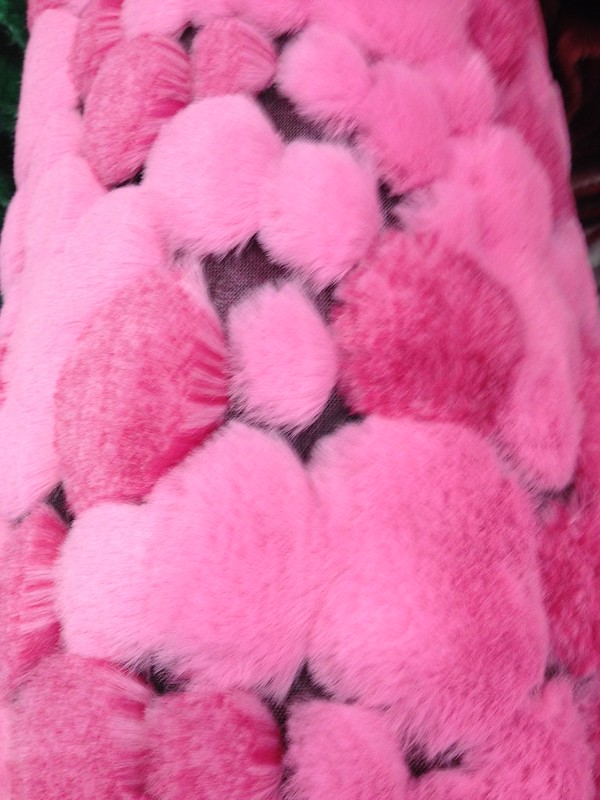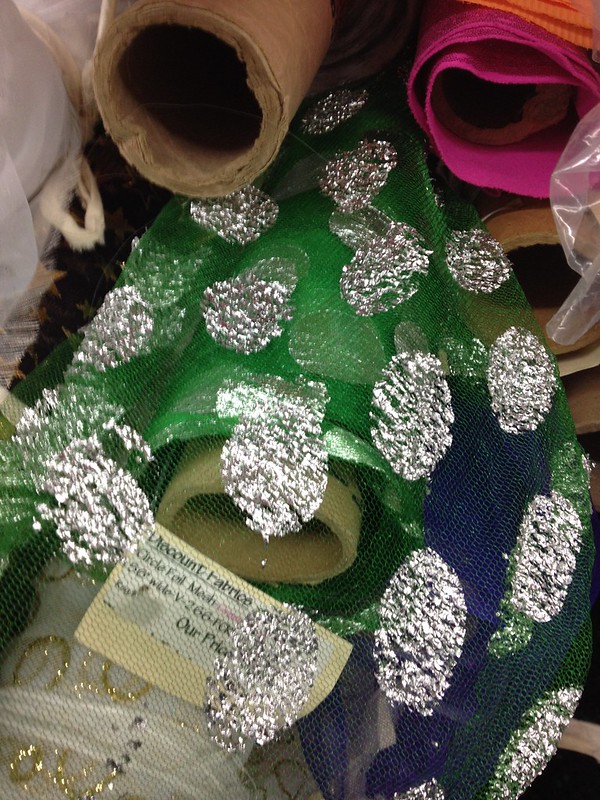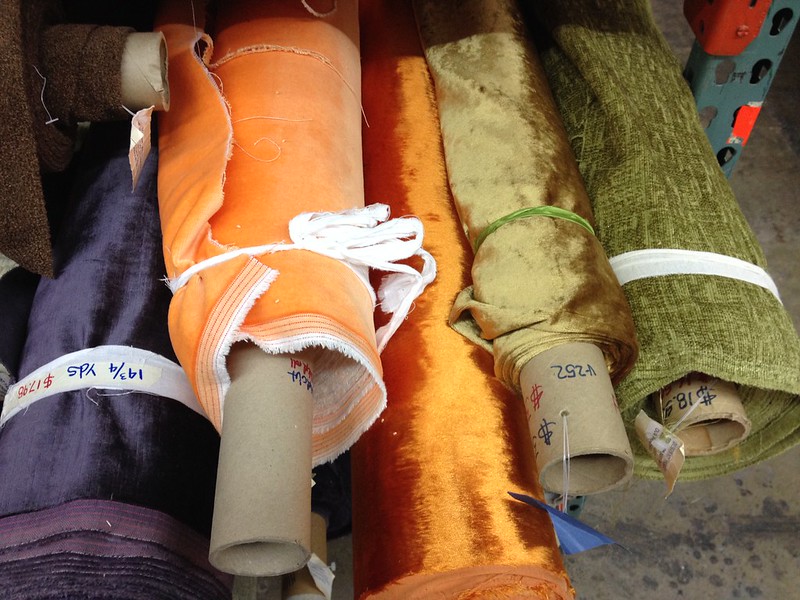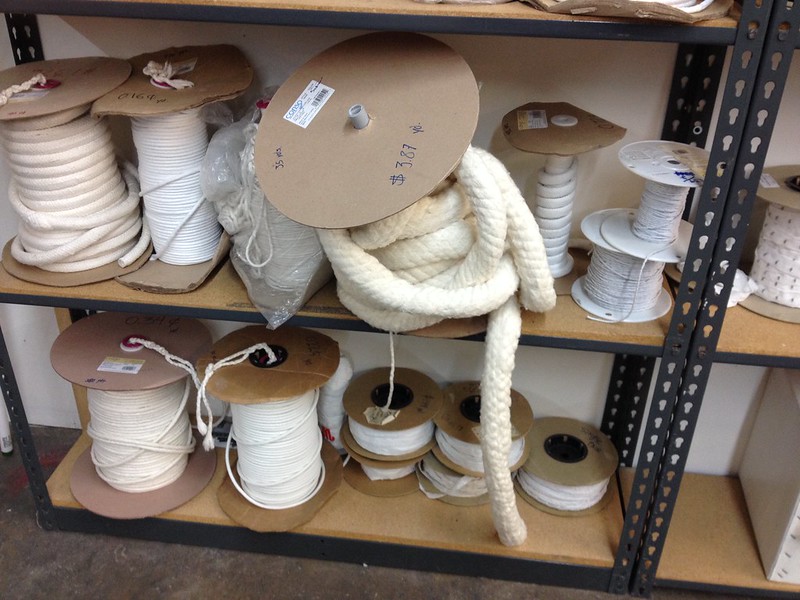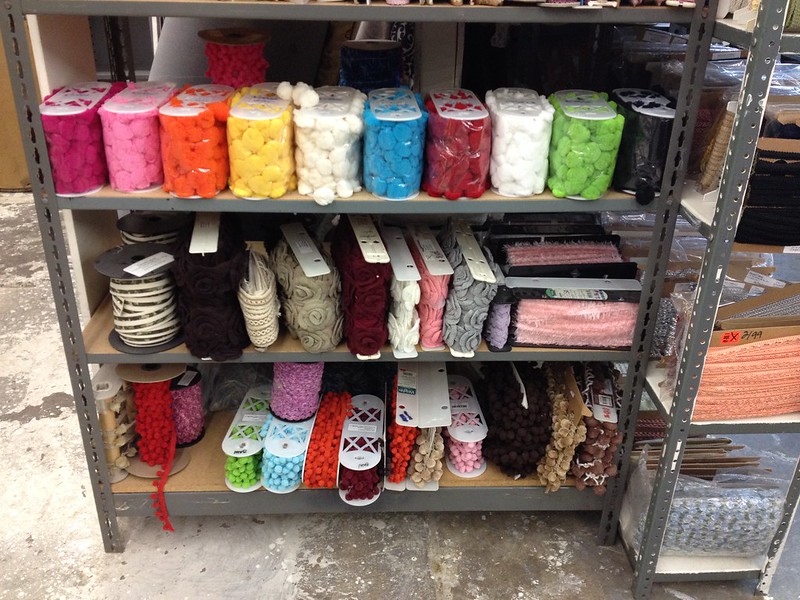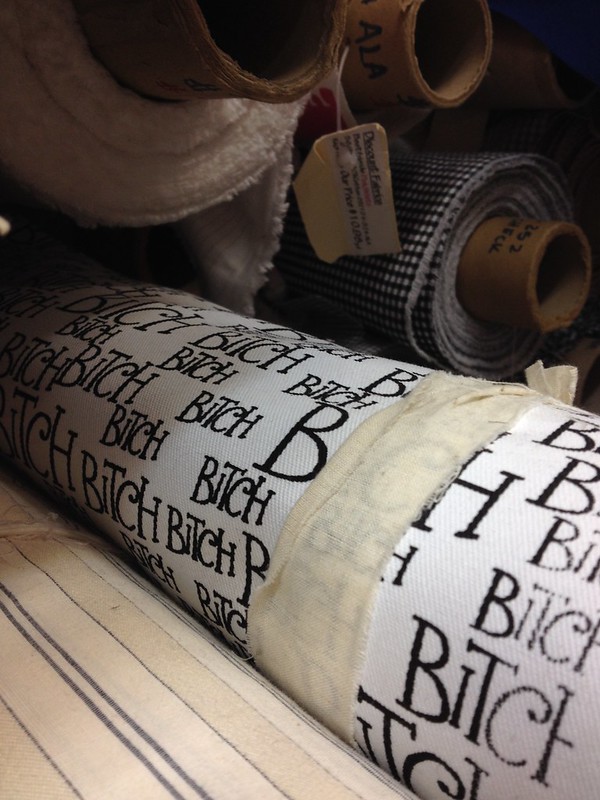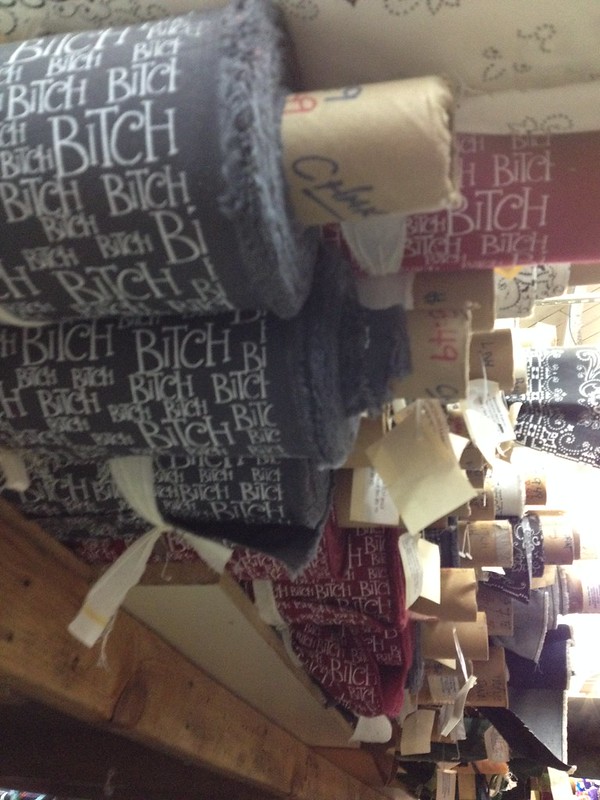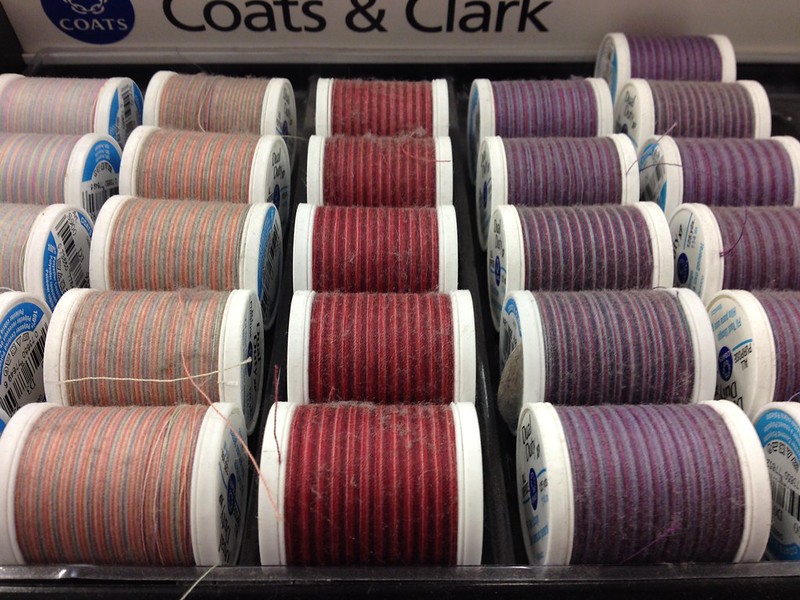Since I have been doing this with a series of shirts I thought I'd write a tutorial on the dissection process.
First, a word on choosing your shirts. I am lucky because San Francisco has a number of cheap thrift stores so shirts can be easily had for $2-3, sometimes just 99 cents! My favourite thrift shop - Thrift Town - even has sales and daily discounts as well as a loyalty scheme! When faced with a selection of shirts...
- Make a beeline for the end of the display that has the long sleeved shirts in the largest sizes - a 3X shirt is going to give you more fabric than a XS.
- Once you find a shirt you like the look of pull it clear of the rack and check the label to see what it is made of. You might be fine with a cotton/poly mix but usually for quilts you want 100% cotton.
- Now check the armpits and front for staining. If the front has stains on you may want to just put it back straight away and move on. If it's one small stain and you really like the fabric then check the rest of the shirt for marks and as long as it is OK add it to your basket. Surprised I'm not telling you to check the collar and cuffs? We will be discarding them all together so don't worry about them - although if they are really nasty it's a good sign that you need to thoroughly check the rest for stains.
- Next move on through the smaller sizes. If your thrift shop has separated them and you see a short-sleeved shirt you really like then go through the same process with them - but remember that short sleeves will give you roughly a FQ less fabric than long sleeves.
When you get home, start off with giving the shirts a good wash with your usual detergent. Once they are dry it is up to you whether you want to iron them or not. I tend not to as the flat pieces of fabric are much easier to iron once you have them chopped up. Now we're ready to start!
- Lay your shirt out face up and hold your scissors firmly. Mine are spring-loaded so they open automatically. So much easier! Starting to the right of the button band, cut just to the right of the seam.
- Keep cutting along this line until you reach the collar. Just before the first seam of the collar change direction and cut around this line.
- Once you have cut around the base of the collar you will find yourself on the button side of the button band. Change direction again and cut down alongside the seam of the button band.
- This will leave you with some of your first scraps to throw away or reuse as stuffing. As a button addict I can't let myself throw away buttons, even very plain white ones, so I use a seam ripper to take them all off.
- Now move to the right side of the shirt and find the side seam. Start cutting just to the left of the seam.
- When you reach the armhole, as with the collar, change direction and cut to the left of the armhole seam. If your armhole has staining, you should cut around it now.
- When you get to the shoulder seam change direction again and cut just below it until you reach the neck.
- You have almost finished your first piece but first there is that bottom seam. My shirt had some shaping to round the bottom of the shirt where the front and back join together. I cut around this. Other shirts may have straight bottom edges.
- Once that bottom seam is off you have your first piece! You'll notice that I've left the pocket in place. I've seen a number of quilts - especially memory ones - that leave the pockets on as a feature. I rather like this idea so I've left mine but you can always unpick or cut around them if you have one on your shirt.
- You can now repeat the steps above for the left front. On my shirt there was a small oil mark on this side so I marked that with a pin to make sure I didn't forget about it.
- I cut it out leaving me with a small hole towards the bottom.
- With both fronts dealt with return to the rest of the shirt and finish removing that right sleeve, continuing to cut to the left of the seam.
- Cut the seam off just to the right os the stitching. Once that is done start cutting to the right of the sleeve seam, all the way down to the cuff. You are going to throw the cuff away (they are usually very worn, as is the collar) so you can cut straight through it.
- Cut down the side of the seam still attached and discard that. Next cut straight across the cuff and discard that too.
- You can also cut around the cuff placket and discard that, saving the button. You may choose to keep it and sew it up to provide a more continuous length of fabric, using it as a design feature.
- The final piece to tackle is the back. The shoulder seams need removing, cutting just underneath them.
- In some shirts the back piece is divided into a top and bottom section with the top being a double thickness. While this reduces the overall size of the back piece it results in an extra piece of fabric. Some shirts may have a pleat or several pleats in the lower of the back pieces, where it joins the top piece. If your shirt is like mine and has this divide in the back pieces, cut just underneath the seam, all the way across and across any pleats that might be there.
- Cut just above the seam of this top section - it may feel like you are cutting through extra layers of fabric but don't worry about this. This will result in two separable pieces of fabric.
- In a well made or older shirt you may need to pull away some seam allowance from between the two pieces - you can discard this. In my shirt there wasn't enough seam allowance to show so I just gave it a shake and few wisps fell out. One of the pieces may have a label attached. You could unpick this, or leave it there, but I tend to cut them out and keep them as a guide to which fabric comes from which shirt manufacturer.
- This will leave you with just the bottom section of the back of the shirt which should now just need the bottom hem removing. If there were pleats then it is possible you may have a small seam to unpick in the centre of each pleat.
- And there you go! You should now have a pile of fabric sections and a pile of scrap.
I hope you find this useful! Feel free to add it to Pinterest if you think you might need it in the future.

